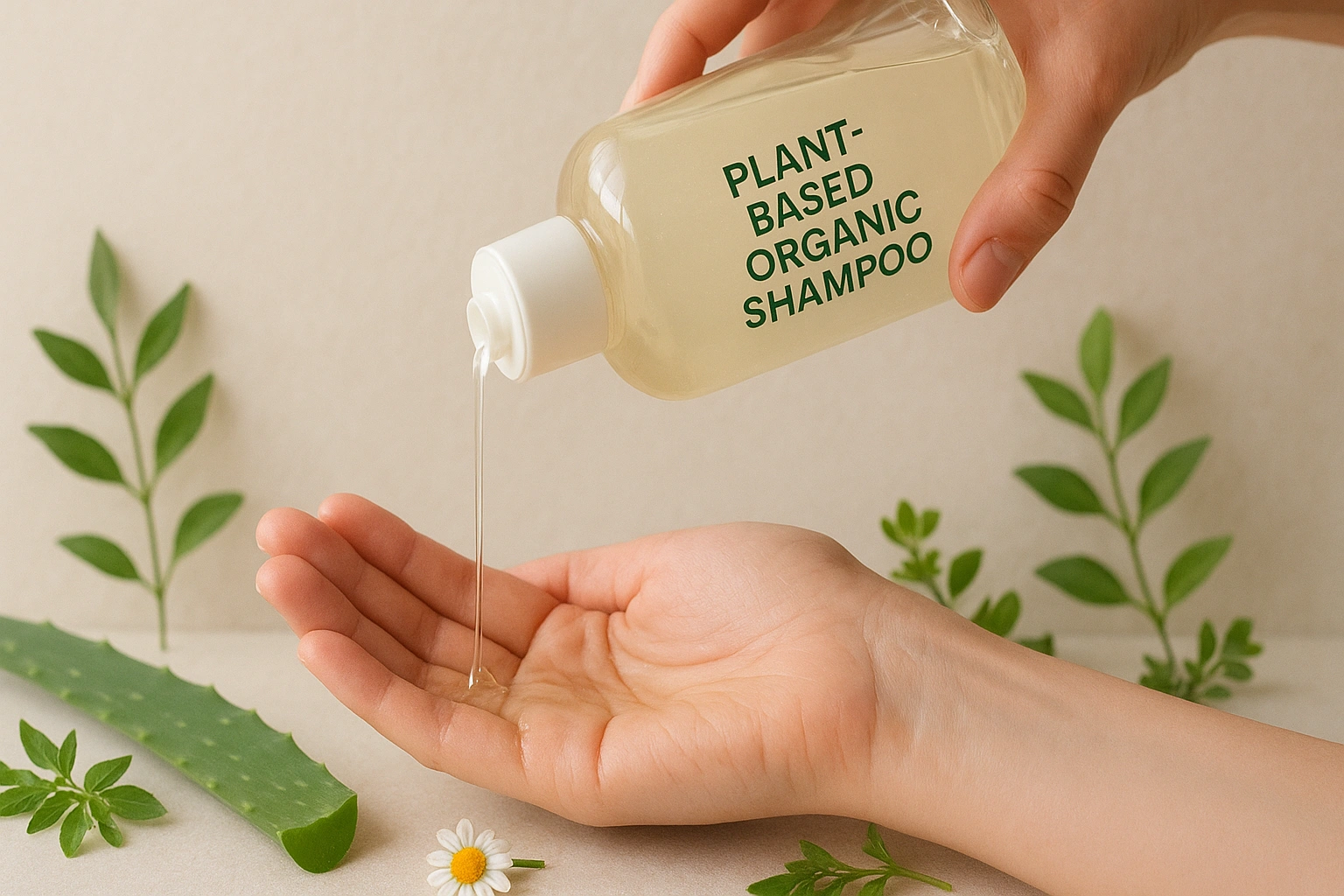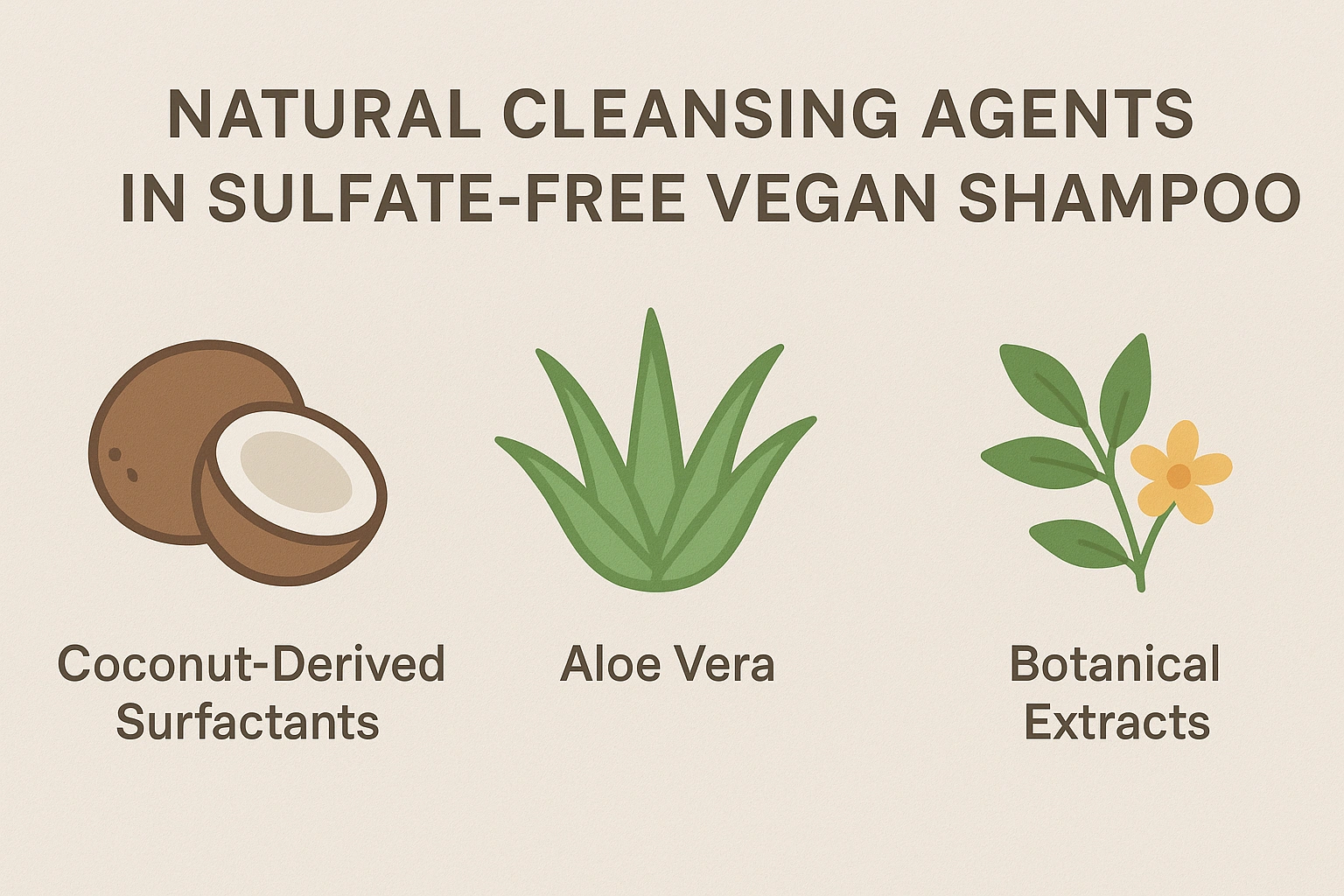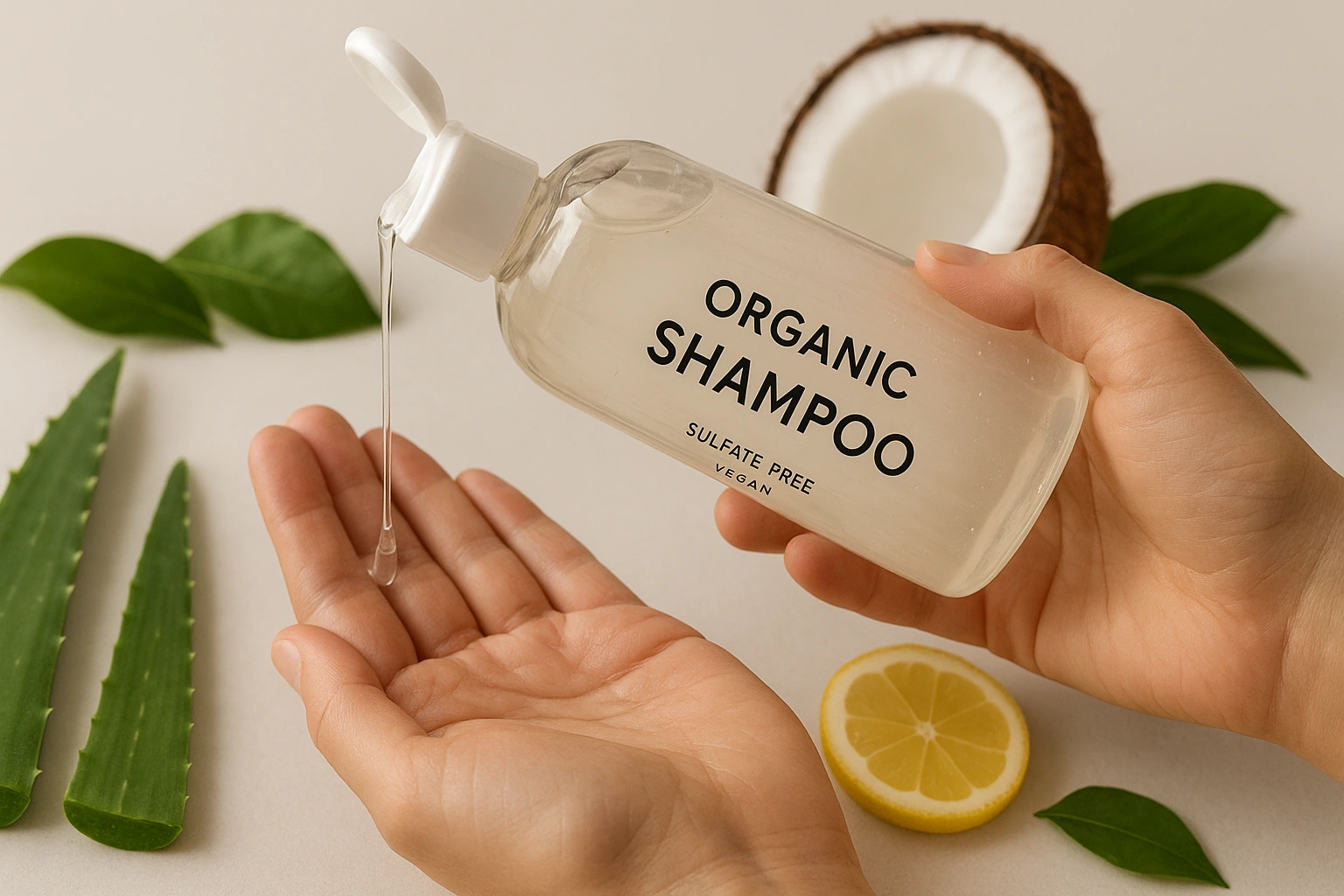Have you ever read the ingredient list on your shampoo bottle and felt like you needed a chemistry degree to understand it? You’re not alone. Many commercial shampoos are loaded with harsh detergents and synthetic chemicals that can strip your hair and irritate your scalp. In 2025, the clean beauty movement is empowering us to demand better. This guide is dedicated to helping you find an **organic shampoo** that not only cleanses your hair effectively but also nourishes it from root to tip. Get ready to discover the world of chemical-free cleansing and unlock your hair’s true, natural potential.
What Makes a Shampoo Truly “Organic”?
The term “organic” gets thrown around a lot, but in the world of cosmetics, it has a specific meaning. An organic shampoo is formulated with ingredients that are farmed without synthetic pesticides, herbicides, or GMOs. To be officially certified (for example, by the USDA), a product must contain at least 95% organic ingredients. This is a significant step up from shampoos simply labeled “natural,” which is an unregulated term and can be misleading.
The demand for authentic, clean products is undeniable. A recent market analysis highlighted by Statista shows the natural and organic cosmetics sector is one of the fastest-growing segments in the beauty industry. Consumers are actively seeking a **sulfate-free vegan shampoo** because they are more conscious than ever about ingredient safety and environmental impact.

The Benefits of Switching to Organic Shampoo
Gentle on Your Scalp and Hair
Organic shampoos use plant-based cleansers that gently lift away dirt and oil without stripping the natural sebum from your scalp and hair. This maintains your hair’s moisture balance, leading to less dryness, frizz, and breakage over time.
- Reduces Scalp Irritation: Free from harsh chemicals, they are ideal for sensitive scalps prone to itching and redness.
- Promotes Healthy Growth: A balanced, healthy scalp is the optimal environment for strong hair growth.
Free from Harsh Sulfates and Parabens
Sulfates (like Sodium Lauryl Sulfate) are aggressive detergents that create a big lather but can be incredibly drying. Parabens are preservatives that have raised health concerns. A quality **sulfate-free vegan shampoo** avoids these entirely.
Better for the Environment
The ingredients in organic shampoos are biodegradable and sourced from sustainable farming practices. This means less chemical runoff into our waterways and a smaller environmental footprint. For more on sustainable tech, check out our articles at AI Robotics.
How Do They Cleanse Without Chemicals?
Instead of harsh sulfates, organic shampoos rely on natural surfactants derived from plants. These clever ingredients create a gentle cleansing action that effectively removes impurities.

- Coco-Glucoside: A mild cleanser derived from coconut oil and fruit sugar.
- Saponins: Found in plants like soap nuts and soapbark (Quillaja Saponaria), these compounds naturally create a soap-like foam when mixed with water.
- Decyl Glucoside: Another gentle, plant-derived surfactant that is great for sensitive skin.
Top 3 Organic Shampoos That Genuinely Cleanse
1. Avalon Organics – Clarifying Lemon Shampoo
This has been my go-to for years when my hair feels weighed down. The lemon essential oil, quinoa protein, and aloe work together to break down product buildup and restore natural highlights and shine. It has a satisfying, though not overpowering, lather and leaves my hair feeling incredibly clean and light. It’s a true detox in a bottle.
| Pros | Cons |
|---|---|
| Excellent at removing buildup | May be too clarifying for daily use on dry hair |
| Affordable and NSF certified | Lemon scent is distinct |
2. Rahua – Classic Shampoo
This is a luxury experience with incredible results. Made with rare, Amazonian ingredients like Rahua oil, it strengthens and repairs weak, damaged hair while gently cleansing. The lather is minimal and creamy, and it leaves hair feeling soft, nourished, and visibly healthier. It’s an investment, but a little goes a long way.
3. 100% Pure – Kelp & Mint Volumizing Shampoo
For those with fine or flat hair, this shampoo is a game-changer. It uses sea kelp to add thickness and mint to stimulate the scalp for healthy growth. It provides a deep clean that leaves hair feeling refreshed and full of body, without any heavy residues. The invigorating minty scent is a wonderful bonus.
Organic Shampoo Comparison
| Brand | Key Ingredients | Price Range | Best For |
|---|---|---|---|
| Avalon Organics | Lemon, Aloe, Quinoa Protein | $ | Clarifying Oily Hair & Buildup |
| Rahua | Rahua Oil, Palo Santo | $$$ | Repairing Dry or Damaged Hair |
| 100% Pure | Kelp, Peppermint, Nettle | $$ | Volumizing Fine or Flat Hair |
Expert Tips for Making the Switch
“When you switch to an organic shampoo, you have to re-learn how to wash your hair. Focus on massaging the product into your scalp, where the oil is. The ends don’t need as much direct cleansing. And always, always rinse thoroughly.”
– Dr. Anabel Kingsley, Trichologist
- Double Cleanse: For very dirty or oily hair, wash twice. The first wash breaks up the dirt, and the second wash cleanses it all away, producing more lather.
- Add More Water, Not Product: If you’re struggling to get a lather, add more water to your hair before adding more shampoo. This helps activate the natural cleansers.
Frequently Asked Questions (FAQ)
Q: Will organic shampoo clean oily hair?
A: Yes, absolutely. Look for organic shampoos with clarifying ingredients like tea tree oil, citrus extracts, or apple cider vinegar. These natural ingredients are excellent at breaking down excess sebum and product buildup without the harsh stripping effects of sulfates, leaving your hair balanced and clean.
Q: Why doesn’t my organic shampoo lather much?
A: The massive, foamy lather most people are used to comes from chemical sulfates (like SLS). Organic shampoos use gentler, plant-based cleansers that produce a milder, creamier lather. It’s still cleaning your hair effectively; it just feels different. You can try adding a little more water to help increase the foam.
Q: Is there a ‘detox’ period when switching to organic shampoo?
A: Sometimes, yes. If you’ve been using conventional products with silicones, your hair might feel heavy or waxy for a week or two as the organic shampoo works to remove that buildup. Be patient, and maybe use a clarifying organic shampoo once a week to speed up the transition. Your hair will feel lighter and healthier afterward.
Conclusion
Switching to an **organic shampoo** is more than just a trend; it’s a commitment to healthier hair and a healthier planet. By ditching the harsh chemicals, you allow your hair and scalp to return to their natural, balanced state. The brands and tips in this guide prove that you don’t need sulfates to achieve a deep, satisfying clean. Your journey to truly healthy, naturally beautiful hair starts with one simple, powerful choice. For more on safe cosmetics, visit the Google’s safety center.
